Political strongman
A strongman is a type of authoritarian political leader. Political scientists Brian Bell and Dan Slater identify strongman rule as a form of authoritarian rule characterized by autocratic dictatorships depending on military enforcement, as distinct from three other categories of authoritarian rule, specifically machine (oligarchic party dictatorships); bossism (autocratic party dictatorships); and juntas (oligarchic military dictatorships).[1]
A 2014 study published in the Annual Review of Political Science journal found that strongmen and juntas are both more likely to engage in human rights violations and civil wars than civilian dictatorships.[2] However, military strongmen are more belligerent than military regimes or civilian dictatorships—i.e., they are more likely to initiate interstate armed conflict.[2] It is theorized that this is because strongmen have greater reason to fear assassination, imprisonment, or exile after being removed from power.[2] The rule of military strongmen is more likely to end through an insurgency, popular uprising, or invasion; by contrast, the rule of military regimes and civilian dictatorships are more likely to end in democratization.[2]
List
Leaders that have been classified by political scientists as strongmen include:
 António de Oliveira Salazar
António de Oliveira Salazar Abdel Fattah el-Sisi[3]
Abdel Fattah el-Sisi[3] Ilham Aliyev[4]
Ilham Aliyev[4] Hafez al-Assad
Hafez al-Assad Mustafa Kemal Atatürk
Mustafa Kemal Atatürk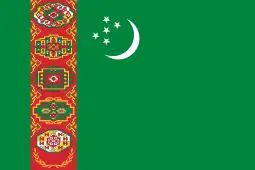 Gurbanguly Berdimuhamedow[5]
Gurbanguly Berdimuhamedow[5]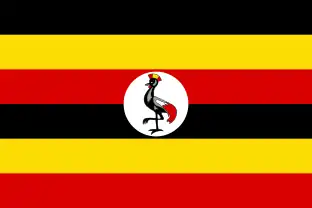 Idi Amin[6]
Idi Amin[6]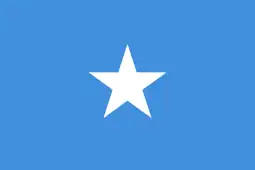 Siad Barre
Siad Barre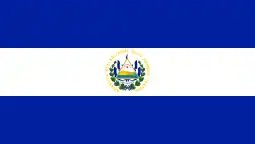 Nayib Bukele[7][8]
Nayib Bukele[7][8]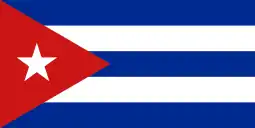 Fidel Castro
Fidel Castro Raúl Castro
Raúl Castro.svg.png.webp) Nicolae Ceaușescu
Nicolae Ceaușescu Recep Tayyip Erdoğan[9][10]
Recep Tayyip Erdoğan[9][10].svg.png.webp) Adolf Hitler
Adolf Hitler.svg.png.webp) Saddam Hussein
Saddam Hussein.svg.png.webp) Muammar Gaddafi
Muammar Gaddafi Klement Gottwald
Klement Gottwald.svg.png.webp) Kim Il-sung
Kim Il-sung.svg.png.webp) Salah Jadid
Salah Jadid.svg.png.webp) Wojciech Jaruzelski[11]
Wojciech Jaruzelski[11]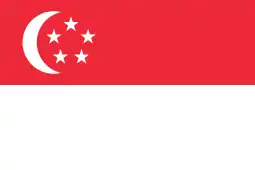 Lee Kuan Yew
Lee Kuan Yew Xi Jinping[12]
Xi Jinping[12]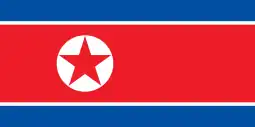 Kim Jong-il
Kim Jong-il Kim Jong-un
Kim Jong-un János Kádár
János Kádár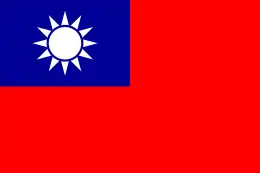 Chiang Kai-shek
Chiang Kai-shek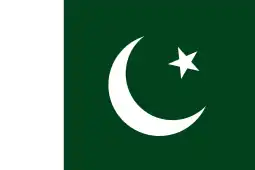 Ayub Khan
Ayub Khan.svg.png.webp) Vladimir Lenin
Vladimir Lenin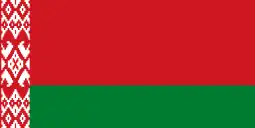 Alexander Lukashenko[13]
Alexander Lukashenko[13].svg.png.webp) Ferdinand Marcos
Ferdinand Marcos.svg.png.webp) Ioannis Metaxas
Ioannis Metaxas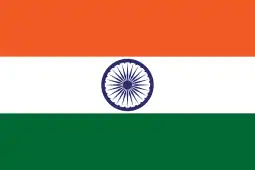 Narendra Modi[14]
Narendra Modi[14].svg.png.webp) Benito Mussolini
Benito Mussolini.svg.png.webp) François Duvalier
François Duvalier.svg.png.webp) Gamal Abdel Nasser
Gamal Abdel Nasser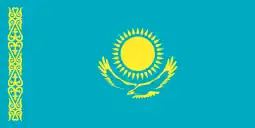 Nursultan Nazarbayev[15]
Nursultan Nazarbayev[15]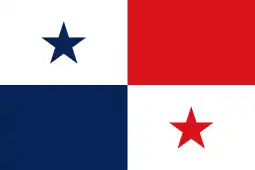 Manuel Noriega[16]
Manuel Noriega[16]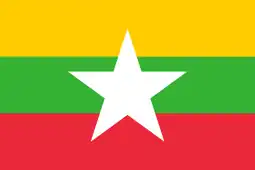 Min Aung Hlaing[17][18][19]
Min Aung Hlaing[17][18][19] Viktor Orbán
Viktor Orbán Juan Domingo Perón
Juan Domingo Perón Augusto Pinochet
Augusto Pinochet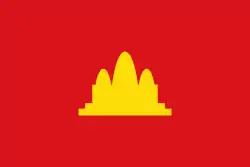 Pol Pot
Pol Pot Vladimir Putin[20]
Vladimir Putin[20]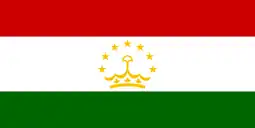 Emomali Rahmon
Emomali Rahmon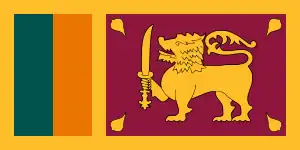 Gotabaya Rajapaksa[21]
Gotabaya Rajapaksa[21] Mahinda Rajapaksa[22]
Mahinda Rajapaksa[22] Mátyás Rákosi
Mátyás Rákosi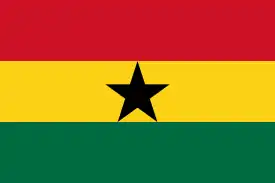 Jerry Rawlings
Jerry Rawlings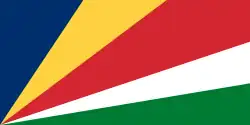 France-Albert René
France-Albert René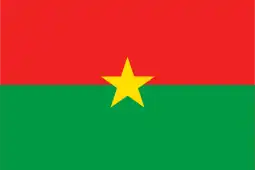 Thomas Sankara
Thomas Sankara.svg.png.webp) Than Shwe
Than Shwe.svg.png.webp) Mobutu Sese Seko
Mobutu Sese Seko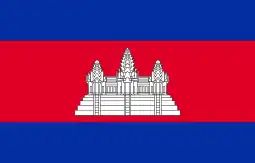 Hun Sen[23]
Hun Sen[23].svg.png.webp) Joseph Stalin
Joseph Stalin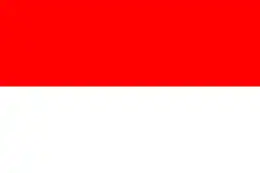 Suharto[24]
Suharto[24] Mahathir Mohamad[25]
Mahathir Mohamad[25].svg.png.webp) Josip Broz Tito
Josip Broz Tito Omar Torrijos[26]
Omar Torrijos[26].svg.png.webp) Getúlio Vargas[27]
Getúlio Vargas[27] Mao Zedong
Mao Zedong
See also
References
- Lai, Brian; Slater, Dan (2006). "Institutions of the Offensive: Domestic Sources of Dispute Initiation in Authoritarian Regimes, 1950–1992". American Journal of Political Science. 50 (1): 113–126. doi:10.1111/j.1540-5907.2006.00173.x. JSTOR 3694260.
- Geddes, Barbara; Frantz, Erica; Wright, Joseph G. (2014). "Military Rule". Annual Review of Political Science. 17: 147–162. doi:10.1146/annurev-polisci-032211-213418.
- Tadros, Sherine (6 May 2014). "Egypt's Military Strongman: Saviour Or Dictator?". Sky News. Retrieved 1 July 2023.
- Foy, Henry (21 February 2017). "Azerbaijan strongman Ilham Aliyev names wife as vice-president". Financial Times. Retrieved 4 February 2023.
- Sadykov, Murat (4 November 2013). "Turkmenistan: Strongman Pumps Iron on Health Day". Eurasianet. Retrieved 4 February 2023.
- Jessica L. P. Weeks, Dictators at War and Peace (Cornell University Press, 2014), pp. 76–80.
- Murray, Christine; Smith, Alan (6 March 2023). "Inside El Salvador's Mega Prison: The Jail Giving Inmates Less Space than Livestock". Financial Times. Mexico City and London. Retrieved 8 March 2023.
- Freeman, Will (16 February 2023). "Nayib Bukele's Growing List of Latin American Admirers". Americas Quarterly. Retrieved 10 March 2023.
- Hamid, Shadi (26 June 2017). "How Much Can One Strongman Change a Country?". The Atlantic. Retrieved 3 October 2022.
- Skondrianos, Nikolaos (6 July 2021). "Will US and EU pressure soften Erdogan's brand of strongman rule?". Australian Strategic Policy Institute. Retrieved 3 October 2022.
- "Wojciech Jaruzelski: the communist strongman who continues to divide Poland". opendemocracy.net. 30 May 2014. Retrieved 26 August 2023.
- Baranovitch, Nimrod (4 March 2021). "A Strong Leader for A Time of Crisis: Xi Jinping's Strongman Politics as A Collective Response to Regime Weakness". Journal of Contemporary China. 30 (128): 249–265. doi:10.1080/10670564.2020.1790901. ISSN 1067-0564. S2CID 225532315.
- "Belarus strongman Lukashenko marks 25 years in power | DW | 10 July 2019". Deutsche Welle. Archived from the original on 10 July 2019. Retrieved 21 May 2020.
- Ellis-Petersen, Hannah (19 November 2021). "'The strongman blinks': why Narendra Modi has backed down to farmers". The Guardian.
- Fisher, Max (7 January 2022). "Behind Kazakhstan Unrest, the 'Strongman's Dilemma'". The New York Times. ISSN 0362-4331. Retrieved 4 February 2023.
- Michael L. Conniff & Gene E. Bigler, Modern Panama: From Occupation to Crossroads of the Americas (Cambridge University Press, 2019), p. 29.
- Fisher, Jonah (20 July 2015). "Myanmar's strongman gives rare BBC interview". BBC News. Naypyidaw. Retrieved 29 March 2023.
- Mathieson, David Scott (2 August 2021). "Myanmar's strongman outlines a manifesto of madness". Asia Times. Retrieved 29 March 2023.
- "Cambodia urges Myanmar junta chief to allow in aid and envoy". Reuters. Phnom Penh, Cambodia. Nikkei Asia. 26 January 2022. Retrieved 29 March 2023.
Hun Sen as ASEAN chairman held a video call with military strongman Min Aung Hlaing
- Kagan, Robert (19 March 2019). "The strongmen strike back". Brookings. Retrieved 3 October 2022.
- Miglani & Aneez, Sanjeev & Shihar. "Sri Lanka strongman Rajapaksa wins presidency by big margin". Reuters. Reuters. Retrieved 1 September 2023.
- PTI. "Lanka's ex-strongman Mahinda Rajapaksa makes 1st appearance". Times of India. Times of India. Retrieved 1 September 2023.
- "Hun Sen: Cambodia's strongman prime minister". BBC News. 27 July 2018.
- Neuman, Scott (27 January 2008). "Longtime Indonesian Strongman Suharto Dies at 86". NPR.
- "The rise of Malaysian strongman Mahathir Mohamad". South China Morning Post. Retrieved 9 April 2023.
- Michael L. Conniff, Panama and the United States: The End of the Alliance (University of Georgia Press: 3d ed. 2012), p. 140.
- The New York Times: VARGAS ADOPTED 'STRONG MAN' ROLE; Held Power Longer Than Any Other Brazilian President -- Popular With the People